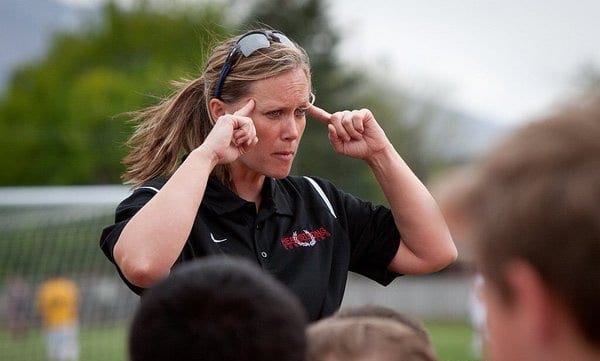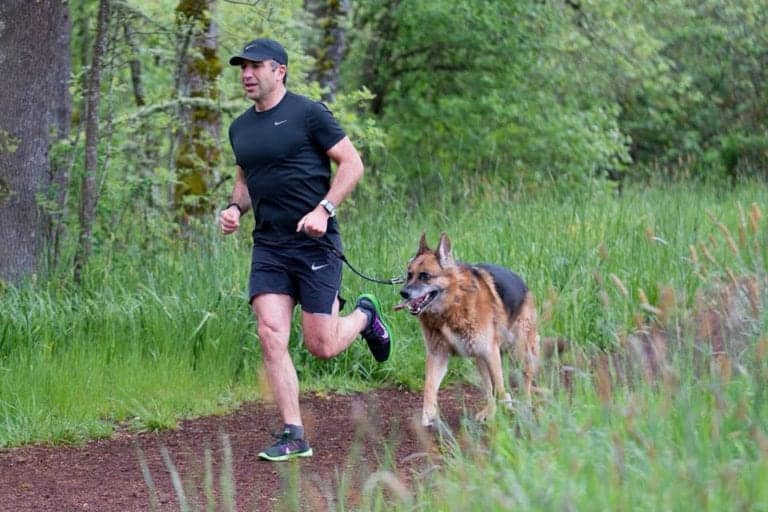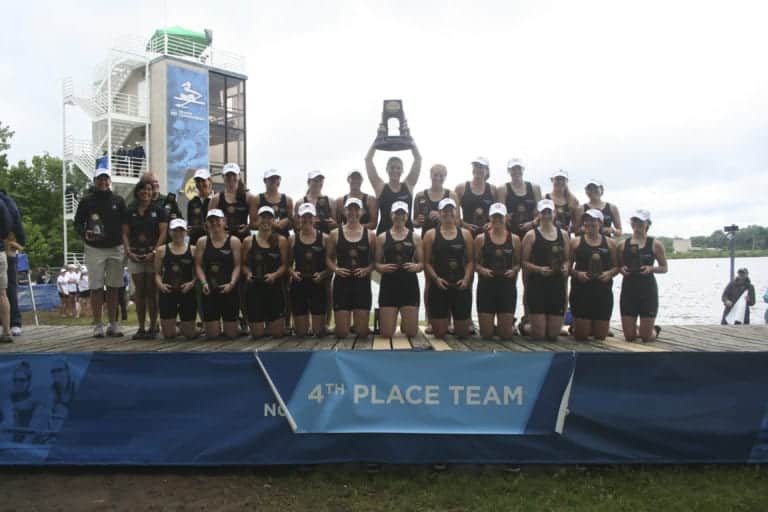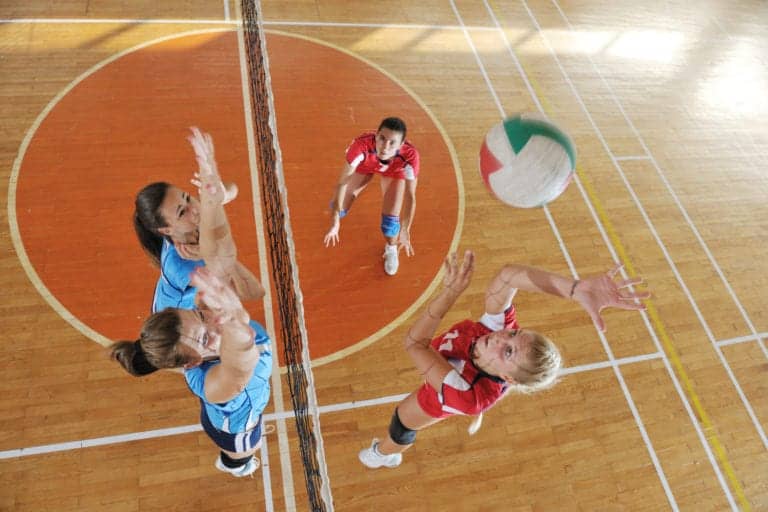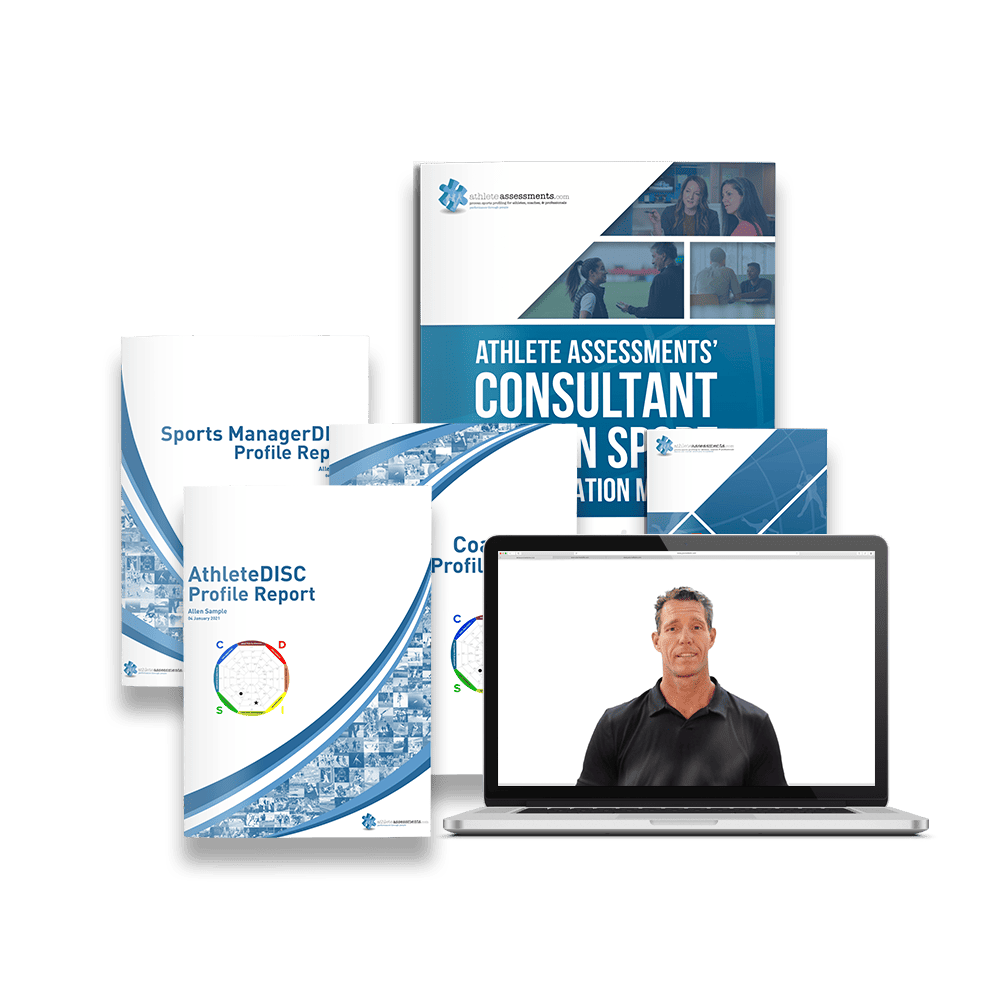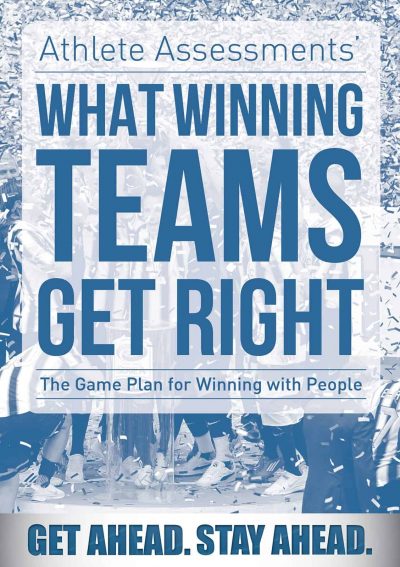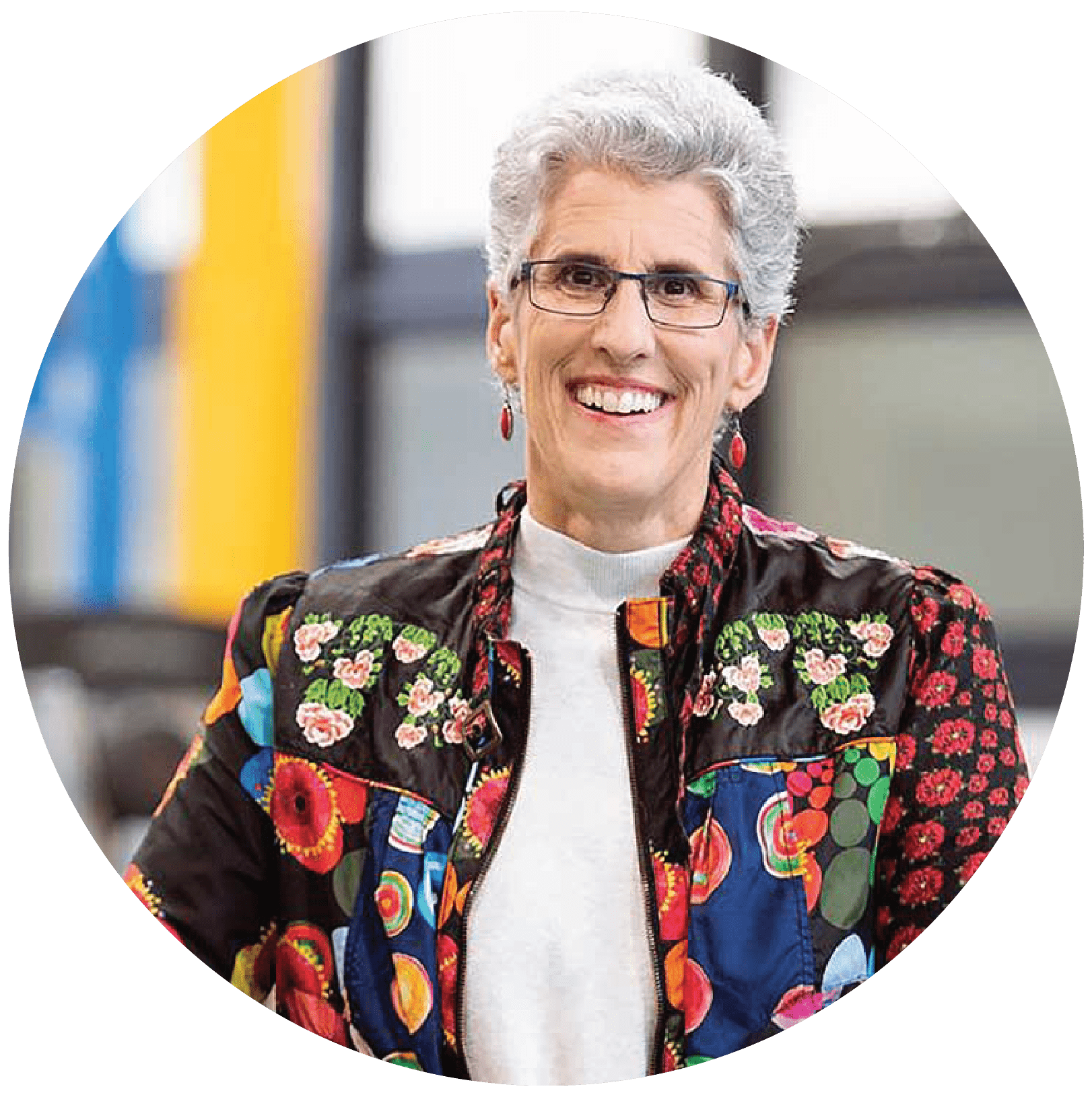
Leadership is not anchored to a nominal position or the domain of the select few within a team, according to Sarah Leberman, Professor of Leadership at Massey University, New Zealand. Also a Fulbright Scholar and the author of highly significant research on leadership, Leberman specialises in applying the knowledge surrounding leadership to the sport space and in particular women and girls. She works with various teams, including one competing for the world #1 ranking, Commonwealth and Olympic medals. In this article she describes the process of preparing not only the team competing, but the organization as a whole for their Olympic campaign. She divulges what differentiates teams competing at the elite level of sport and shares her passion, her hopes for the future, and the three things that underscore her success with clients.
Getting directly to point, we asked Sarah exactly what leadership means in her consultancy and what it looks like in sport. She says, “It means knowing yourself first – values, strengths and passion. Then it means fostering and maintaining meaningful relationships with everyone you interact with – players, coaches, managers and administrators – it is fundamentally all about people first and acting with integrity at all times. It also means being able to ask the hard questions in a respectful way – always looking for ways to enable people to fulfill their potential. Once people are in the high-performance environment they have already proven that they have the requisite technical and tactical skill set – what is often missed is the crucial part about working with people to achieve more than you could by yourself. Three Māori words encapsulate this – whanaungatanga (loosely translated as family) in this context bringing people together towards a common goal, kaitiakitanga (loosely translated as stewardship) and manākiatanga (which is about uplifting others mana loosely translated as honor – it is about respect and valuing everyone’s contribution).”
She adds,
“I believe anyone can exercise leadership and that this does not have to be positional. This is a critical learning for many, as often leadership is associated with being the captain or the coach. Realizing that everyone on the team can exercise leadership and play to their strengths means more engagement and accountability, rather than abdicating responsibility to ‘the’ leader.”
With that definition in mind, we wanted to understand how this extensive and inclusive concept of leadership works in an applied setting. So, we asked Sarah to describe the work she’s doing to prepare one of the teams she’s working with for their Olympic campaign.
She explained that she began her work on leadership with this group by having “everyone in the team create a poster that conceptualised leadership to them. We shared this at the beginning of our journey together. The importance of this was to open up a conversation about what we mean by leadership – as opposed to being ‘a’ or ‘the’ leader. The focus of my work was to enable everyone to exercise leadership on and off the field.”
Explaining the chronology of the process, she details the way she worked with the team creating their culture first, describing it as one “with shared principles and values, together with a tag line – to drive all decisions made both on and off the field. This is particularly important for a team where the majority of players are either working or studying, as the sport (this team plays) is not professional.”
There’s a good reason Sarah dedicated time to getting culture right first. Besides the fact that nothing works if a team’s culture isn’t right, we asked Sarah about the #1 differentiators between teams performing at the highest level. She was unequivocal in saying that the culture created and driven by the team makes the ultimate difference. She also adds that another critical differentiator is, “the ability for everyone to hold each other accountable and communicate in an open and constructive manner.”
Elaborating on accountability she explains that it’s the #1 issue her clients work to overcome. She explains that accountability is even more problematic in an environment where player depth is an issue.
As part of establishing a culture of accountability and leadership, Sarah used behavioral profiling. She explains why it was integral to the process, she says, “we worked through the DISC profiling to focus in particular on communication within the whole team including coach and support staff. It was very helpful providing a common language and also for understanding everyone’s preferred behaviors.”
Tying the whole process together she says, “everyone can exercise leadership, as long as they know themselves – their values, strengths and passion. What this means in the sport context is that everyone involved has to first be passionate about their role within the team, know their strengths – technical, tactical and interpersonally – and how their values align with those of the team – so they can live these every day.
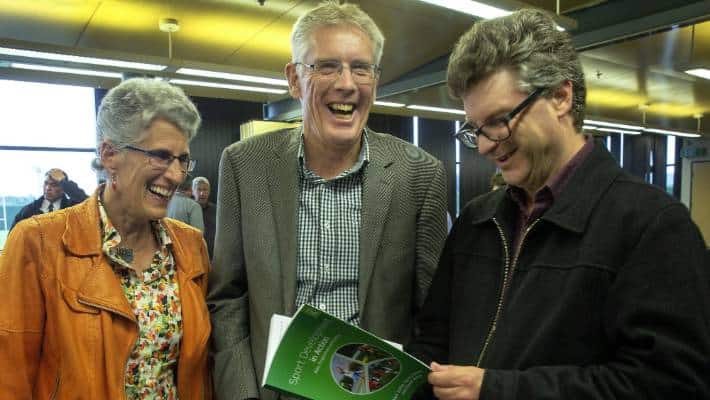
Successful teams have all of these elements in place and Sarah says that if she was to give one piece of advice to athletes and coaches it would be, “Know yourself first. Be honest with yourself and hold yourself accountable for everything you do. Then build strong relationships with everyone on the team.”
Given that Sarah asks athletes to align their passion, values and work ethic, we asked her about her own. This is what she said, “My passion is facilitating learning opportunities which enable people to grow and develop and realize their full potential. I am particularly passionate about girls and women in sport, so I try and support girls and women’s teams wherever possible.”
She adds,
“Seeing the team come together and succeed is always the icing on the cake.”
Knowing she’s invested in player development and growth both on and off the field and the way that growth culminates in performance, when we asked Sarah to tell us about a career highlight, she said for her it was a “Gold medal for one of the teams I work with at the 2018 Gold Coast Commonwealth Games.”
But it’s not just sport and athletes who benefit from Sarah’s energy, passion and ability to apply her knowledge and research, Sarah’s involved in the business and academic sectors as well.
Solo and with fellow researchers, Sarah has made significant contributions to the body of knowledge surrounding women in leadership and most recently, women managing women and navigating those difficult professional relationships at work.
In this recent research output, published in 2017, Jane Hurst, Sarah’s Ph.D. student at the time, collaborated with 13 New Zealand women to develop personal and organizational responses when relationships between women at work become strained. They outlined strategies which accommodate the nature of the conflict, grow communication and build support networks within and outside the organization. Her output in the academic sphere includes journal publications, books (e.g. Women in Sport Leadership: Research & Practice) reports and conference presentations, researching and consequently developing applied solutions to issues surrounding women in leadership. She is the co-founder of Women in Sport Aotearoa, which is also the delivery agent for the International Working Group on Women in Sport.
At Athlete Assessments we are constantly learning from our consultant clients’ work with their clients. We love hearing about Sarah’s progress. She says that three things that have helped her succeed with clients are, “building strong relationships, focusing on the process, and acting with integrity at all times.”
As an Athlete Assessments Consultant Client, Sarah has access to the DISC Profiling process, she can profile each of the players, coaches, and administrators she’s working with. In addition to profiling, she puts all the information through her own filters and combines it with her vast knowledge and experience. She is able to debrief results, has access to Bo Hanson’s experience and the team at Athlete Assessments. Of this process she says that the Athlete Assessments’ DISC Profiles are an, “excellent tool for helping people understand both themselves and others.” She adds, “I have used the card game with a number of groups who cannot afford the full online assessment – and it works really well – both in the sport and corporate environment.”
She adds, “I am very grateful for the approach made to me a few years ago to become a consultant – I am very proud to be able to work with you (Athlete Assessments) to help teams reach their full potential.”
Where to from here…
Are you a consultant looking to take your clients performance to the next level? No matter where you’re based, here’s some more information about our consultant’s packages.
As a top consultant, your clients rely on you being the best in your field, knowing the true determinants of success and having access to the tools that will make the most impact when it comes to improving performance. Athlete Assessments’ DISC Profiling is the tool you need to help your clients realize their potential.
At Athlete Assessments we’re here to provide you with excellence in service and to help you be your best. If there is anything we can do to be of service, don’t hesitate to contact us.
LOVE THIS ARTICLE?
DOWNLOAD YOUR FREE, PRINTABLE PDF COPY BY FILLING OUT THE FORM BELOW!
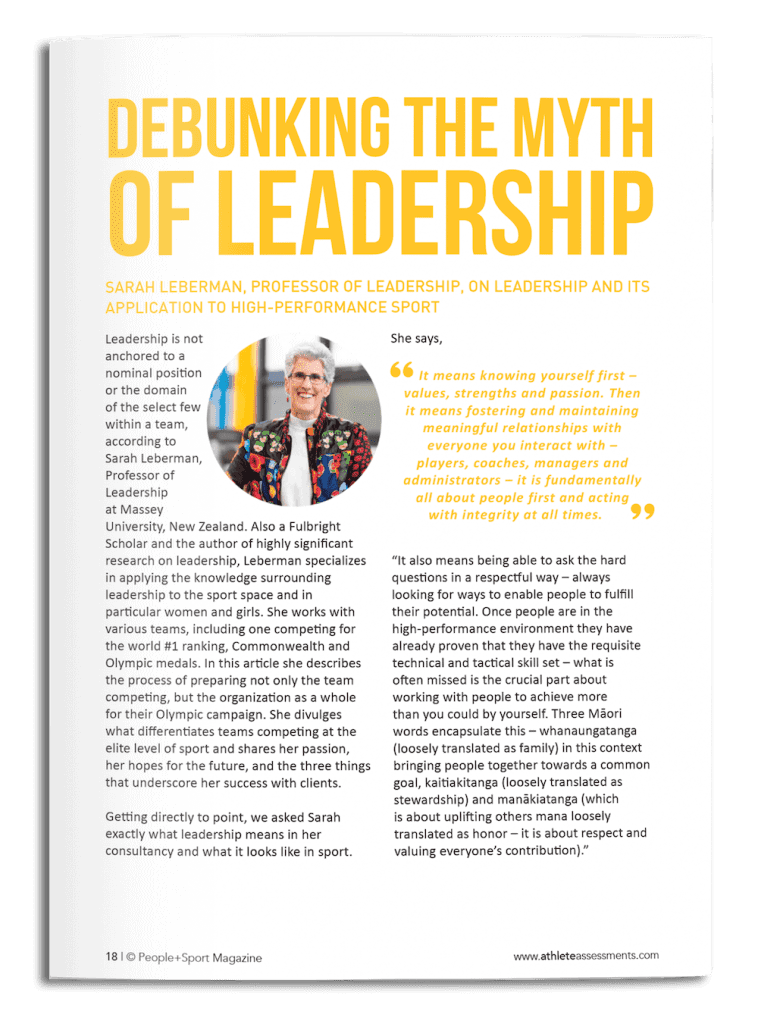
Suggested Articles
Mental Performance Coach, Dr Nicole Detling, is distinguished by her ability to cultivate exceptional progress in her athletes. Professionally, she was a fundamental part of Team USA’s incredibly successful campaigns at the 2010 Vancouver Olympics, 2014 Sochi Olympics and the 2018 Olympics in PyeongChang. She worked with the US Speed Skating and Freestyle Aerial Ski Teams as well as the Snowboarding team for PyeongChang. Over 2 decades she’s developed a unique insight into the pressures associated with Olympic performance, how to work through them and lay the foundations for success.
Josh Gordon relishes the opportunity to resolve fractious conflicts or situations engulfed by ineffective cultures. He’s a conflict management specialist, founder of the Sports Conflict Institute, and co-author of essential reading, The Sport’s Playbook: Building Teams That Outperform, Year After Year.
Sandra Chu, High-Performance Consultant, Princeton Graduate, Director of Two Tigers Consulting, successful Collegiate Rowing Coach, is a proven game changer. In any sport, in any field, her commitment to excellence, ability to analyze the obstacles, develop strategies and institute changes, transforms lives and fundamentally the ability and performance of teams.
An “all in” attitude sees Sport Psychology Consultant Becky Ahlgren Bedics use every piece of herself to ensure her athletes, Coaches and athletic administrators are the very best they can be. In this article we put the spotlight on one of the in-demand consultants we work with and share her insights into the critical link between personal growth and athletic performance. She reveals a common problem faced by student–athletes and divulges the invaluable advice she gives to rookies. Her own career trajectory will inspire and inform.


